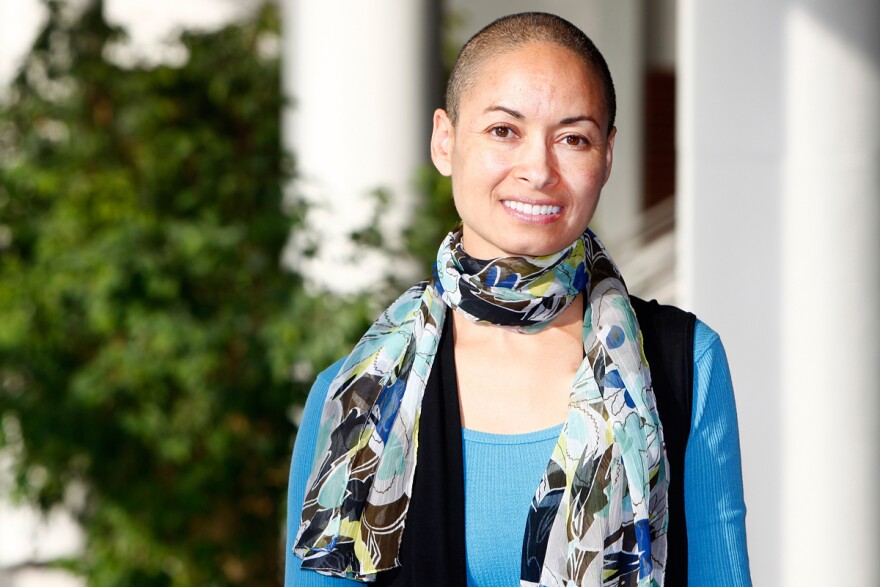About eight years ago, Rebecca Ginsburg established the Education Justice Project -- a program that provides prisoners at the Danville Correctional Center with upper level college courses, workshops and other educational services. Ginsburg is a professor of education policy at the University of Illinois in Urbana-Champaign, and today, she’s making her second visit to the White House to participate in a roundtable discussion on criminal justice reform.
To qualify for enrollment in the upper level courses, the men need to have already completed two years of college.
"As a rule, we tend to attract individuals who are serving longer sentences for more serious crimes, and that's because most people, when they're incarcerated in the United States, they don't have a GED or a high school diploma, and it takes some time before they can acquire that," Ginsburg says. "And with EJP in particular, since we only take transfer students, we tend to attract people near the end of pretty long sentences."
Ginsburg calls them transfers, but virtually all EJP students earned their first 60 hours of college credit through the prison’s partnership with Danville Area Community College.
These men typically serve as leaders inside the prison -- roles they tend to expand in EJP classes. More than once, these inmates have surprised their teachers with their creative initiative. One group of EJP students decided to produce a juried, prison-wide art show, and handled the publicity and produced the accompanying catalog. Prisoners studying Shakespeare decided to mount a full-length Shakespearean production for an audience of university scholars. But the most enduring example of EJP student leadership is a program called Language Partners -- created by an inmate during the first year EJP offered classes in the prison.

"It was a business writing course, and the final project was for students to propose some sort of business activity, and we expected them to suggest all sorts of for-profit business enterprises," Ginsburg says. "And we were blown away when one of the students, Ramon Cabrales, presented a proposal to start an ESL program in the prison."
EJP brought in University of Illinois staff who train English as a Second Language teachers to train EJP students, who then developed an ESL program to help the hundreds of incarcerated men who don't speak English.
So far, 65 EJP students have finished their sentences and been released from prison. Ginsburg says that of those 65, only 6 percent have returned to prison. The average recidivism rate for Illinois Department of Corrections is 47 percent.






